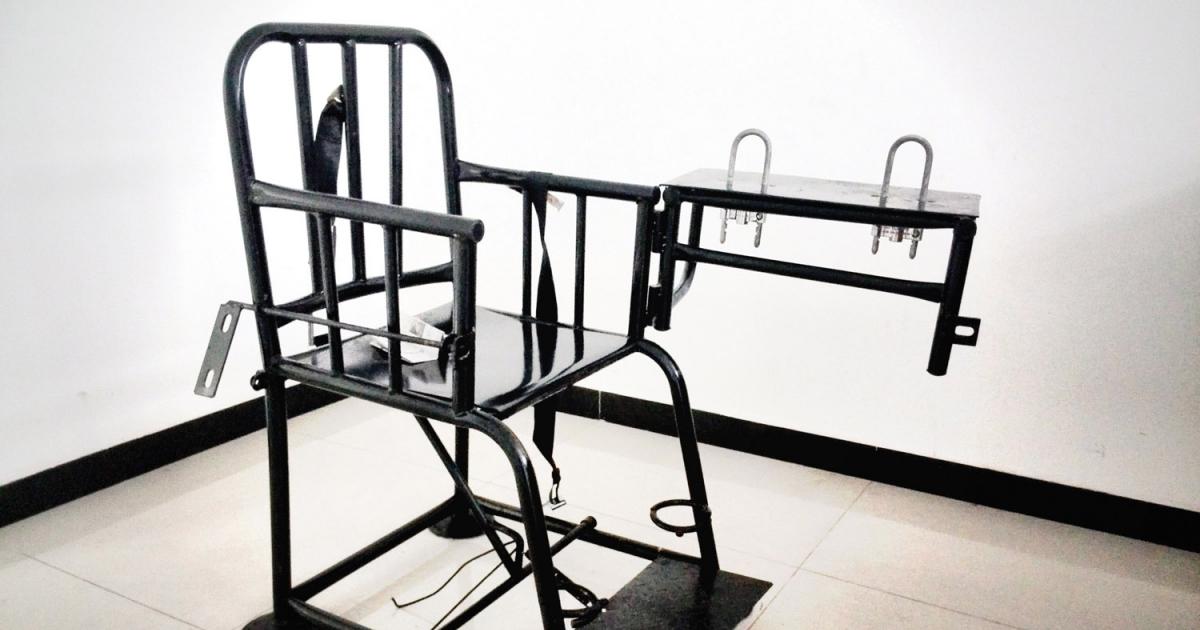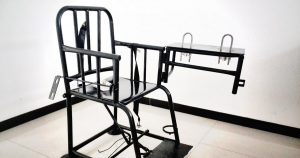International Day in Support of Victims of Torture Must Shed Light on Countless Uyghur Cases

Press Release – For immediate release
26 June 2017
Contact: World Uyghur Congress www.uyghurcongress.org
0049 (0) 89 5432 1999 or [email protected]

On this International Day in Support of Victims of Torture, the World Uyghur Congress would like to highlight the extent to which the Uyghur population has, and continues to be, tormented by torture from state officials from the lowest to highest levels. The Chinese government must take immediate action to stop the use of torture that continues to plague the criminal justice system.
Ahead of China’s official review at the Committee Against Torture’s 56th Session, the World Uyghur Congress and Uyghur Human Rights Project partnered in releasing an alternative report to the Committee to document cases of torture involving Uyghurs and to highlight the particular effects of torture on the population. The report covered much of the ground that was not addressed in reports from other areas of civil society, in particular highlighting details regarding alleged instances and threats of torture of Uyghurs as well as articles 1-4 and 10-15 of the Convention.
Back in 2015, the report addressed issues such as the definition of torture under Chinese law, police and security training methods, the potential for torture following the passage of laws on counter-terrorism and extremism, torture in pre-trial detention and forced confessions extracted through torture, and .documented cases of torture of Uyghur detainees.
The net result of this new legislation and its effect on the prevalence of torture is easily predictable. By broadening the definitions of terrorism, religious extremism and what constitutes “endangering state security,” China has, in effect, vastly expanded opportunities for the use of torture as a policing method and within the criminal justice system generally.
One particular issue has been the ability of Chinese authorities to deny Uyghurs access to legal representation during detention, particularly when charged under vague “state-security” laws and laws relating to terrorism or extremism. According to China’s Criminal Procedure Law (CPL), police are legally entitled to deny access to lawyers for suspects charged with terrorism and state security offenses. Uyghurs arrested on these charges may also be held in secret locations outside of official detention centres, compounding the risk of mistreatment.
Within the criminal justice system, the promotion of individual officers through the ranks also creates perverse incentivizes for officers to use all means necessary to gain convictions, regardless of its official legality. Pressure to adhere to strict targets, or “clearance rates”, in relation to the number of crimes ‘solved’ compared to crimes reported to police creates an environment that promotes torture, despite superficial efforts from Beijing to address the problem.
Police officers and other officials are rarely, if ever, disciplined for their participation in torture. Impunity in this regard reinforces an attitude that sees torture as a justifiable means to an end. Given this environment in East Turkestan, and given that access to information is nearly impossible surrounding arrests, the likelihood of use of torture remains incredibly high.
Below are just a few of the more prominent cases of torture of Uyghurs in recent years. The list is by no means exhaustive, but provides a glimpse into the treatment of the Uyghur population, often unjustly caught up in a justice system plagued with systemic problems:
Osman Imin:
Osman Imin is a Uyghur Christian who was first arrested in 2004. He was allegedly tortured severely by police, chained to a metal bed and beaten repeatedly during the period he spent in detention after this initial arrest. He was eventually released on bail in the same year.
Tudahun Hoshur:
In mid-2006, Tudahun Hoshur, a 31-year old trader from Ghulja City, was suspended from a ceiling by his hands, beaten, and denied food for three days for failing to memorize in Chinese all 45 articles of the regulations at Kosheriq Detention Center in Suydung County, Yili Prefecture.
Ismail Semed:
Ismail Semed, who was executed on February 8, 2007 for allegedly attempting to “split the motherland,” was convicted on the basis of confessions that were likely extracted from two other Uyghur prisoners through torture. Semed told his wife just before his execution that his confession was coerced through torture.
Shirali:
In late 2001 and early 2002, Nepalese authorities forcibly returned at least two Uyghur, to the Chinese authorities in the XUAR. One of these men, Shirali, who had been issued with a refugee reference number, was executed in or around October 2003. Before his execution, Shirali gave a comprehensive first hand description of torture to Radio Free Asia (RFA):
One executioner winked at the other, who then came over and pressed down the switch of the chair. As if someone was pouring me with boiling water and peeling off my skin, my entire body was in a harsh pain. I was tortured this way for about three minutes…After a short while, that executioner turned off the chair switch. He came to me and said to me using the interpreter, ‘Just like what we said, you will not get out of here alive. So you must confess.’
They tied my hands and hung me up high. Then they beat me for about half an hour with shackles. I screamed loudly because I could not stand the pain. During this time my body was covered with blood. [Then] they took me down and poured a bucket of water over me.
That heavy executioner said nothing and turned on the chair switch. As if someone was pulling out my heart and sticking a needle through my body, this time I was suffering from an unbearable burning pain. I screamed and bit my tongue […] By this time I had already unconsciously had a bowel movement. My cellmates changed my clothes.
They shouted at me and broke a couple of nails on my right foot–then they pushed nails into two of the toes on my left foot. I lost consciousness […] When I opened my eyes, I saw my cellmates sitting around me. I had been unconscious for exactly seven hours.
As reported by RFA, the torture lasted for nearly eight months in the Old Market Prison, in Guma County, with his interrogators telling him to confess to separatist activities or risk dying in the interrogation room.
Ababekri Rehim:
Mr. Ababekri was arrested in early August, 2014, and according to Chinese state media, confessed on state television of providing misleading information regarding the violence in Yarkant in early August, 2014, to the WUC. The WUC maintained no contact with Mr. Ababekri at any point, and it is clear that his statements were false and made under the pressure of duress or torture.
Ershiddin:
“I lived with 10 other prisoners in a narrow room,” he said. “Most of the Uyghurs were political prisoners from the southern part of Xinjiang. Their crimes were simple ones, such as reading a religious book published overseas, watching a religious video or film, or selling a religious propaganda poster.”
“The Uyghur political prisoners were not only beaten and tortured by the prison guards, but also insulted by the Han Chinese prisoners inside the prison,” he said.
These cases present a mere glimpse into the fate of many Uyghurs who have found themselves in custody in East Turkestan. It is therefore incumbent upon China and the rest of the world to take clear steps to finally eradicate such an evil from our society.

